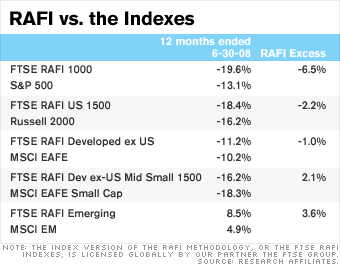5 fashion tips for your portfolio
U.S. stocks are down, bonds are dicey, and the stuff you don't own is way up. What's out of vogue and what'll stay in style?

Index funds, particularly S&P 500 funds that track a broad measure of the U.S. stock market, have come to seem like a no-brainer. Most of us can't consistently pick market-beating stocks. But index funds will always give you the market average. And over the long run, they should fare much better than the average fund. Why? Unlike funds where pros choose the investments, they don't have high expenses eating up your gains.
Trouble is, the returns for S&P 500 index funds have been low in the past decade. Some managers who piled into smaller companies and overseas stocks not in the S&P have done better (often while taking more risk). But you can broaden your definition of the market and still index. Vanguard Total Stock Market follows nearly all U.S. stocks, with 28% of assets in small and midcap companies. Then you can add a foreign index fund to the mix for global exposure.
Meanwhile, a new breed of "fundamental indexers" claim to have a better formula. Rob Arnott, creator of an index tracked by some new funds, argues that the old indexes have a flaw: They weight stocks based on market value, so they end up owning more of the most overvalued companies. Fundamental indexes use alternative measures, such as dividends, to decide how much of a stock to own. If a fund based on those rules had existed 10 years ago, it would have beaten the S&P, according to Arnott's numbers.
Yes, but...Arnott's index tilts more to stocks with lower price-to-earnings ratios. That was great during a long slump for pricier growth stocks. But such trends often reverse, argues Vanguard founder John Bogle. Although betting on value isn't an extreme strategy, buying a fundamental fund still gets you back to trying to outsmart the market. Says Berkeley finance professor Terrance Odean: "It's like stock picking again."
The verdict: No need to get fancy now. Traditional indexing is still hard to beat.
NEXT: Should you fill up on foreign?
